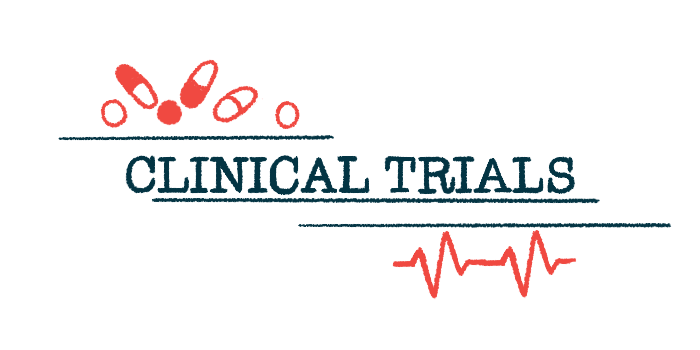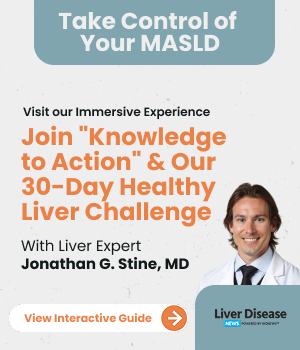Bylvay eases itch, signs of liver damage in Alagille, trial data show
Treatment could ultimately improve standard of care, researchers say

Daily treatment with Bylvay (odevixibat) safely and effectively eases itching and lowers blood bile acid levels, a sign of liver damage, in children and adolescents with Alagille syndrome.
That’s according to final published results from the Phase 3 ASSERT clinical trial (NCT04674761) that were part of the data package that supported the therapy’s U.S. approval last year for pruritus in Alagille patients one year and older. Ipsen, which markets Bylvay, has indicated plans to seek a similar approval in Europe.
The study, “Efficacy and safety of odevixibat in patients with Alagille syndrome (ASSERT): a phase 3, double-blind, randomised, placebo-controlled trial,” was published in The Lancet Gastroenterology & Hepatology. It was funded by Albireo Pharma, Bylvay’s original developer, which was later acquired by Ipsen.
Alagille syndrome is a rare genetic disease affecting the development of several organs, with liver abnormalities being among the most common manifestations.
Particularly, abnormal development of the ducts that carry the digestive fluid bile out of the liver leads to stalled bile flow, or cholestasis, and bile accumulation in the liver, driving organ damage. Over time, patients can develop liver failure and may need a liver transplant.
Pruritis ‘obvious’ target for therapy
The buildup of bile in the liver also leads to bile acid leakage into the bloodstream, which is associated with the itching, or pruritus, that accompanies Alagille syndrome and other cholestatic liver diseases.
Pruritus is among the “most common and debilitating” symptoms of Alagille, the researchers wrote, and is a leading indication for liver transplant. As such, the symptom is “both an obvious therapeutic target and a measure of direct treatment benefit,” they wrote.
Bylvay is an oral therapy approved in the U.S. for managing pruritus in children and adults with Alagille. It works by suppressing the enzyme responsible for carrying bile from the intestine back to the liver to be reused, thereby increasing the excretion of bile acids in the stool and lowering their levels in the bloodstream.
The treatment has been approved in the U.S. and Europe for treating pruritus in people with progressive familial intrahepatic cholestasis, another rare liver disease, since 2021.
The international ASSERT trial enrolled 52 people with genetically confirmed Alagille syndrome, a significant history of pruritus, and elevated blood bile acids. Participants had a median age of 5.5, and 75% were between the ages of 2 and 12.
Participants were randomly assigned to receive either Bylvay at a dose of 120 micrograms per kilogram of body weight, or a placebo, once daily for 24 weeks, or about six months. All patients completed the study.
The main efficacy goal was to determine changes in the PRUCISION Observer-Reported Outcome scratching score from a two-week period preceding treatment initiation to the final month of treatment (weeks 21-24).
Caregivers rated patients’ scratching right after waking up and before bedtime on a scale of 0 to 4, where a higher score indicates worse pruritus-associated scratching.
Quick reduction in scratching
Results showed that Bylvay led to significantly greater declines in scratching scores relative to placebo, meeting the trial’s main goal. Specifically, those on Bylvay saw a mean 1.7-point drop from baseline, whereas those on placebo saw a mean 0.8-point reduction.
Reductions in scratching occurred quickly with Bylvay, with a non-significant difference relative to placebo observed in the first week of treatment. Group differences reached statistical significance in the first month and were maintained thereafter.
A significantly higher proportion of Bylvay-treated patients achieved a clinically meaningful scratching reduction, defined as a drop by at least 1.5 points, compared with those on placebo (54% vs. 18%).
A total of 16 patients ages 8 and older completed an itching score. While the therapy was associated with greater score reductions relative to a placebo, these differences failed to reach statistical significance. This may be due to the small number of patients completing the assessment, the researchers noted.
Bylvay also led to significantly greater reductions in blood bile acids relative to placebo starting as early as week 4 and being sustained until the end of treatment, meeting a key secondary trial goal.
The treatment was also associated with significant improvements in multiple caregiver-reported sleep parameters. Life quality assessments and caregiver-, patient, and clinician-rated measures of overall improvement generally favored Bylvay over the placebo.
Bylvay was generally well tolerated, with the most common treatment-related side effect being diarrhea. Side effects led to dose interruptions in three Bylvay-treated patients (3%), but no treatment discontinuations. No patients died or underwent surgical intervention or liver transplant during the study.
Altogether, “[Bylvay] could be an efficacious, non-surgical option to reduce the [whole-body] accumulation of bile acids that results from cholestasis, lessen the severity of pruritus, and ultimately improve the standard of care in patients with Alagille syndrome,” the researchers wrote.
After completing ASSERT, most participants (96%) enrolled in an open-label extension study, called ASSERT-EXT (NCT05035030), where all are receiving daily Bylvay for up to 1.5 years to look at longer-term outcomes.







